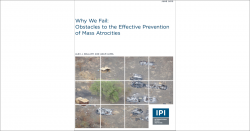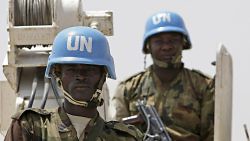
In the twenty years since the Rwandan genocide, the United Nations has developed an extensive body of policies, principles, and institutions dedicated to preventing mass atrocity crimes. But in recent years the killing of unarmed civilians has become all too prevalent again, from Syria to Iraq and South Sudan to the Central African Republic. So […]
Read more








